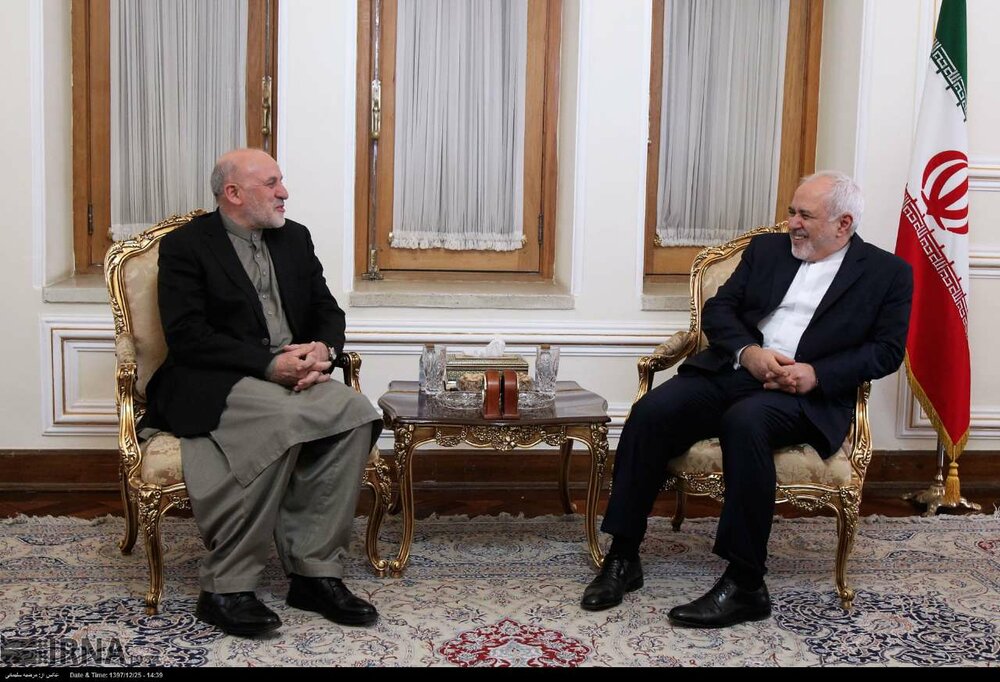Afghans should have final say on their country: Zarif

TEHRAN – Iranian Foreign Minister Mohammad Javad Zarif said on Saturday that it is the people of Afghanistan who should decide about their country.
“We always believe that the Afghan people should air the final view on all affairs and that is why the Afghanistan government as the representative of the people of the country is the decision maker,” Zarif said during a meeting with Mohammad Umer Daudzai, President Ashraf Ghani's Special Representative on Regional Affairs for Consensus on Peace.
The remarks by Zarif comes as dialogue between the Afghan government and the Taliban for ending violence in the country is gaining special importance.
Zarif went on to say that Tehran attaches great importance to peace and stability in Afghanistan.
Iran has always been seeking to help the Afghan government and people, Zarif added.
For his part, Daudzai praised Iran’s “positive position” on Afghanistan.
He also said peace talks with the Taliban should be led by the Afghan government.
“In Afghanistan, the essence of peace talks should be done by the government,” Daudzai insisted.
In his talks with Zarif, he also elaborated on peace talks in Afghanistan.
Hamdullah Mohib, a national security adviser to President Ghani, has accused the U.S. of "delegitimising" the Kabul government by excluding it from peace talks with the Taliban.
Mohib levelled a fierce attack on U.S. Special Representative Zalmay Khalilzad on Thursday, suggesting the U.S. diplomat held ambitions to run for political office in Afghanistan.
Khalilzad was born in the northern Afghan city of Mazar-i-Sharif, but has worked in the U.S. government since 1984, first in the Reagan administration, then under Bill Clinton, George Bush and briefly under Barack Obama.
In recent months, Khalilzad has held a series of talks with the Taliban.
"Knowing Ambassador Khalilzad's history, his own personal history, he has ambitions in Afghanistan. He was wanting to run for president twice," Mohib told the Reuters news agency.
"We think either Zal, Ambassador Khalilzad, doesn't know how to negotiate (or) there may be other reasons behind what he's doing.
"The reason he is delegitimising the Afghan government and weakening it, and at the same time elevating the Taliban can only have one approach. It's definitely not for peace."
Mohib's comments were the most strident public complaints to date by an Afghan official over the Kabul's government's exclusion from negotiations with the Taliban.
The latest round of U.S.-Taliban talks, which lasted for 16 days, ended on Monday in Doha, Qatar. The sides reported progress, but no final deal on a withdrawal of U.S.-led international forces.
"The perception in Afghanistan and people in government think that perhaps, perhaps all this talk is to create a caretaker government of which he will then become the viceroy," said Mohib.
Viceroy is a politically loaded term in South Asia as it was the title of the colonial administrator of British-ruled India.
After previous rounds of talks, Khalilzad typically travelled to Kabul to brief Afghan officials - but not this time. On Tuesday, he flew straight back to Washington.
NA/PA
Leave a Comment